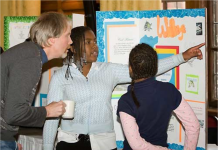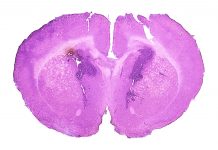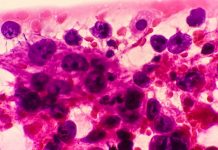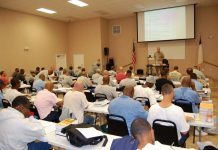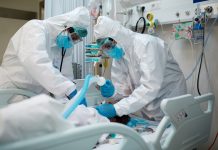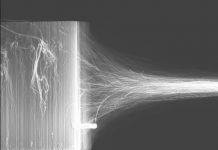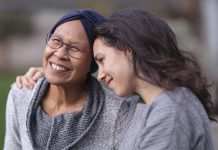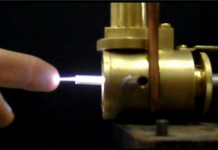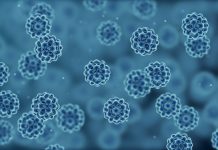Open Access Government produces compelling and informative news, publications, eBooks, and academic research articles for the public and private sector looking at health, diseases & conditions, workplace, research & innovation, digital transformation, government policy, environment, agriculture, energy, transport and more.
Home 2023
Archives
The next frontier in anti-cancer drugs
Dr Anthony J. Berdis, Case Comprehensive Cancer Center discusses the future of cancer treatments and anti-cancer drugs.
Supporting ICT employment opportunities for women in Egypt
Ragui Assaad and Irene Selwaness examine the increase of women in ICT jobs in Egypt, as well as gender disparities and the efforts to promote ICT employment growth.
Inspiring STEM education focused on solutions
Nancy Butler Songer, from the University of Utah, makes a call for collective action to create a new curriculum focused on the design of solutions.
AARS urzymes: Experimental biochemistry to map genetic coding
Dr Charlie Carter from the University of North Carolina at Chapel Hill explores how advances in enzymology and phylogenetics enable biochemical measurements that could map the ancestral development of genetic coding.
Stored fuel’s importance for migrating monarch butterflies: Implications for conserving all migrant animals
In his latest research, Keith A. Hobson, Research Scientist and Professor at Western University, explores why stored fuel is critical to migrating animals, such as monarch butterflies.
Developing novel treatments for childhood solid cancers
With a particular focus on glioma, Dr Peter J Houghton from Greehey Children’s Cancer Research Institute outlines the barriers that have hindered the development of effective therapies for childhood solid cancers.
Optimising subsurface drip irrigation for effective drought defence
Professor Pete W. Jacoby from Washington State University describes how the innovative use of drip irrigation can enhance vineyard resilience to drought.
Gamified eco-driving to motivate safe and sustainable driving
With young drivers at the greatest risk of accidents on the road, eco-driving could offer a solution that promotes safer driving techniques while reducing the environmental impact.
Photodynamic Therapy: Killing cancer gently with visible light
Photodynamic therapy, using visible light with lower energy, causes fewer side effects when treating cancer, find Drs. Mary Potasek, Evgueni Parilov, and Karl Beeson, Co-founders of Simphotek, Inc.
The prison seminary movement and the impact of faith-based programmes
Byron R. Johnson and Sung Joon Jang share key challenges affecting America’s prison system, the prison seminary movement and the positive impact that faith-based programmes can have.
Understanding thermolabile protecting groups for nucleic acid-based drugs
Serge L. Beaucage investigates thermolabile protecting groups for the amine functions of purine and pyrimidine deoxyribonucleosides for the development and implementation of synthetic DNA sequences as nucleic acid-based drugs.
Applying data science advances in disease surveillance and control
Dr. David S. Ebert from the University of Oklahoma’s Data Institute for Societal Challenges and Dr. Aaron Wendelboe from the University of Oklahoma Health Sciences Center outline how a cohesive, multidisciplinary, and multi-tiered approach can support a more predictive model in disease surveillance and control.
The emergence of precision medicine for oncology
Dr Priya Hays, PhD, considers how the rapid development of precision medicine for oncology has impacted diagnosis, treatment, and clinical outcomes in cancer care.
Recording and decoding neural signals from the vagus nerve
Dominique M Durand, distinguished Professor of Biomedical Engineering, Case Western Reserve University, Cleveland Ohio, USA, discusses the study of neural signals from the vagus nerve.
Genetic mechanisms of pigment accumulation in carrot colours
We hear from Philipp Simon, from the USDA, Agricultural Research Service & University of Wisconsin, Madison, about how a kaleidoscope of colors reveals new genetic mechanisms of pigment accumulation in carrot colors.
Ovarian cancer research: Examining ovarian function and dysfunction
JoAnne S Richards, PhD, Professor at Baylor College of Medicine, explores ovarian cancer research with a focus on ovarian function and dysfunction.
Future technology: Multi-purpose plasmas with microwaves
Professor Michel Moisan and his team at Université de Montréal (UdeM) explore reliable, energy-efficient and multi-purpose plasmas with microwaves for research and technology.
Understanding HIV risk in older adults
Laneshia Conner, Assistant Professor at the University of Kentucky, discusses gaps in HIV and AIDS prevention and why greater awareness and support for HIV risk in older adults is needed.
Managing patients with diabetes in rural underserved areas
Professor Richard J. Santen, MD from the University of Virginia, explains the need for retired endocrinologists returning to work to manage patients with diabetes in America’s rural underserved areas, including comment on telemedicine.
Uncovering the potential for geoscience research in Canada’s North
David Mate, Executive Director of the Northern Canada Division, Geological Survey of Canada, shares how the GEM-GeoNorth program is using geoscience research to improve the quality of life for Canadians.



